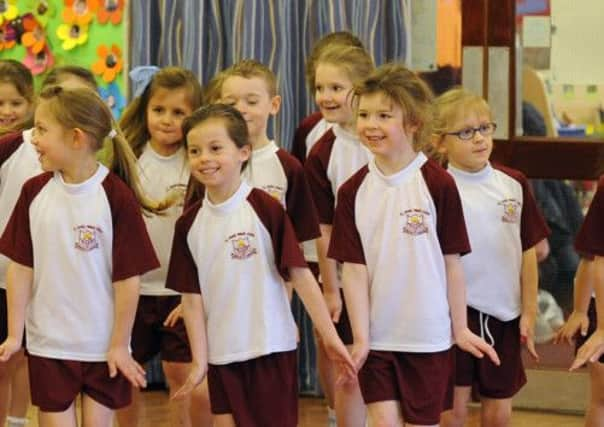The political football of school sports that could do better


FOR many adults memories of school PE lessons are not pleasant – involving enforced team games and a lot of standing about while long-winded explanations were given before you had a short go at the game. If you were lucky an out-of-school club provided an activity you could enjoy.
For some youngsters not much has changed. PE lessons in certain schools are not improving fitness and not enough pupils are playing competitive sport to a high level, says a report by school inspectors at Ofsted.
Advertisement
Hide AdAdvertisement
Hide AdInspections carried out over four years have found that PE lessons are not of a good standard in about a third of primary schools and a quarter of secondaries. Although the subject is in general good health and there has been “significant investment” in the last decade, a quarter of PE lessons fail to improve fitness.
“In particular we found that there often wasn’t enough physical, strenuous activity in PE lessons,” said Ofsted chief inspector Sir Michael Wilshaw. “Some teachers talked for too long and pupils were not provided with enough activity to enable them to learn or practice skills.”
More able children were not challenged enough due to low expectations by teachers, and in general they spent too much time watching each other rather than getting on with activities. A fifth of primary schools were not ensuring that all pupils could swim at least 25m before they left.
School sport has become a political hot potato since the London Olympic and Paralympic Games, with their ambition of a legacy “inspiring a generation”. Ofsted’s report urges a new national strategy for sport in schools, and last week a draft PE national curriculum was published, including participation in competitive sports from the age of seven.
Advertisement
Hide AdAdvertisement
Hide AdA Government spokeswoman said competitive sport was to be reinstated at the heart of school life, replacing the “damaging prizes-for-all culture”. A Labour spokesman said much of the progress in school sport made under his government had been lost in the last three years, with the number of pupils doing two hours of sport a week reduced from 90 per cent to 50 per cent.
Sarah Wenham, senior lecturer in sports development at Sheffield Hallam University, says it’s important to consider that two-thirds of primary schools and three-quarters of secondary schools are still doing a good or very good job. However progress made between 2002 and 2010 is now sliding.
“In 2010, Michael Gove pulled the plug on the School Sports Partnership which had been established in every school, offering a range of opportunities for sport – not just competitive team games, which do not suit everyone. People could find the thing they loved, whether it was judo, dance or hockey.
“I’d like to see a sports specialist in every primary school, responsible for a quality programme of PE and continued professional development in PE for all teachers, who only do six hours of PE training in three years at university. I’d also like to see the reinstatement of the funding that went into staff supporting each other in PE and setting up a network of links between secondary schools and local sports clubs.”
Advertisement
Hide AdAdvertisement
Hide AdMs Wenham added that PE is about more than making a child fitter. “It’s about developing values, team work and physical literacy. Michael Gove wants us to go back to the 1950s with everyone running after a rugby ball.”